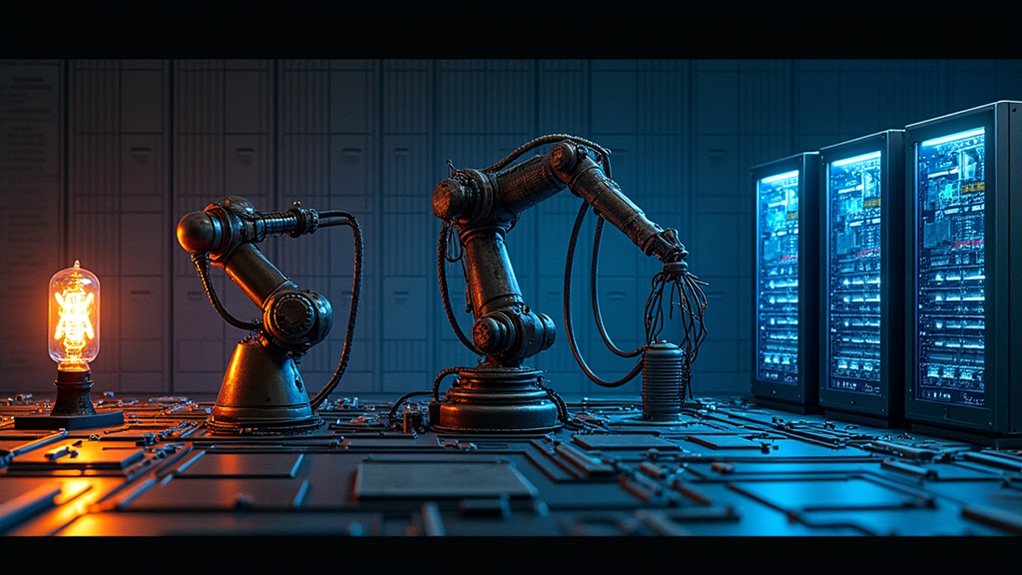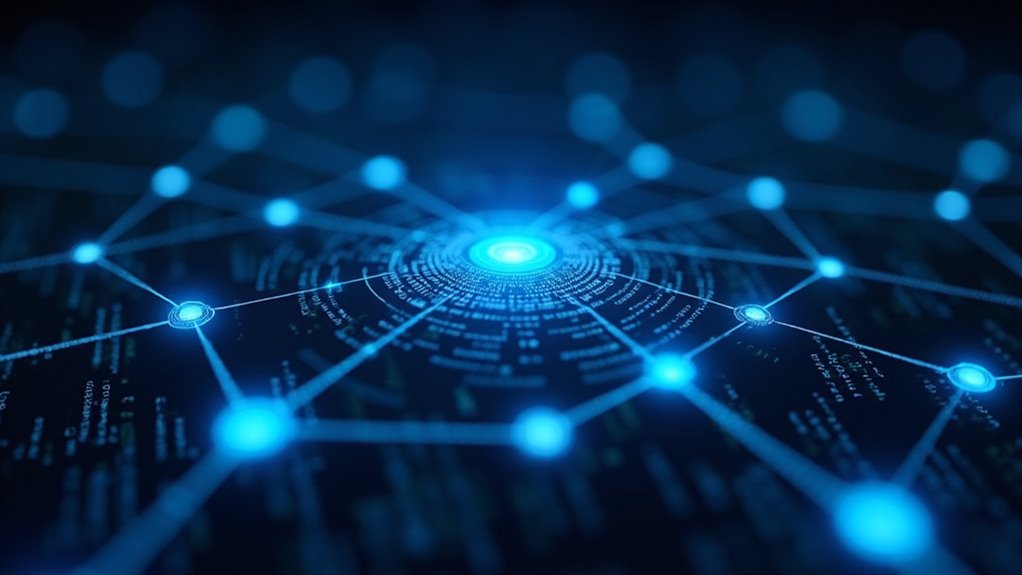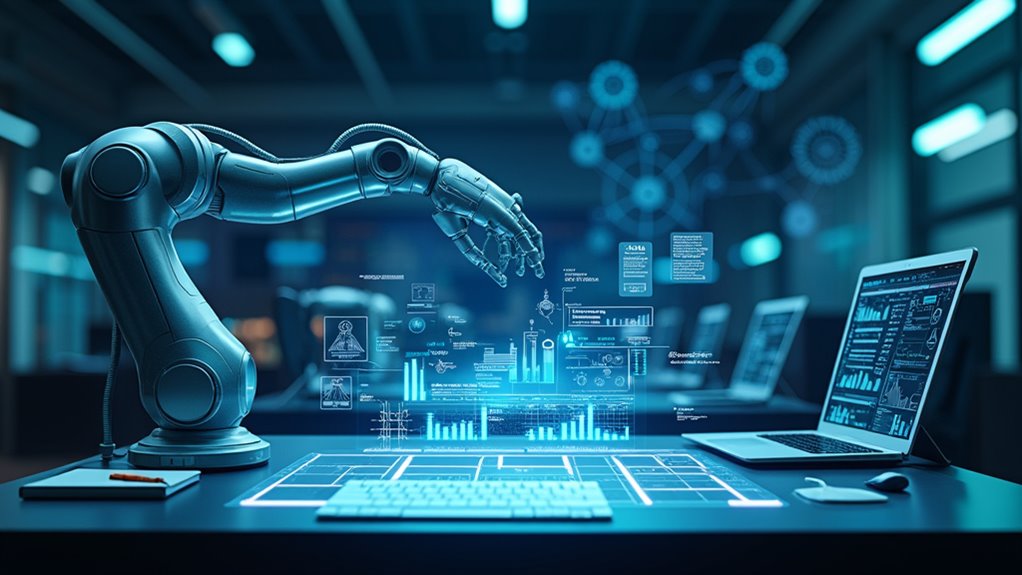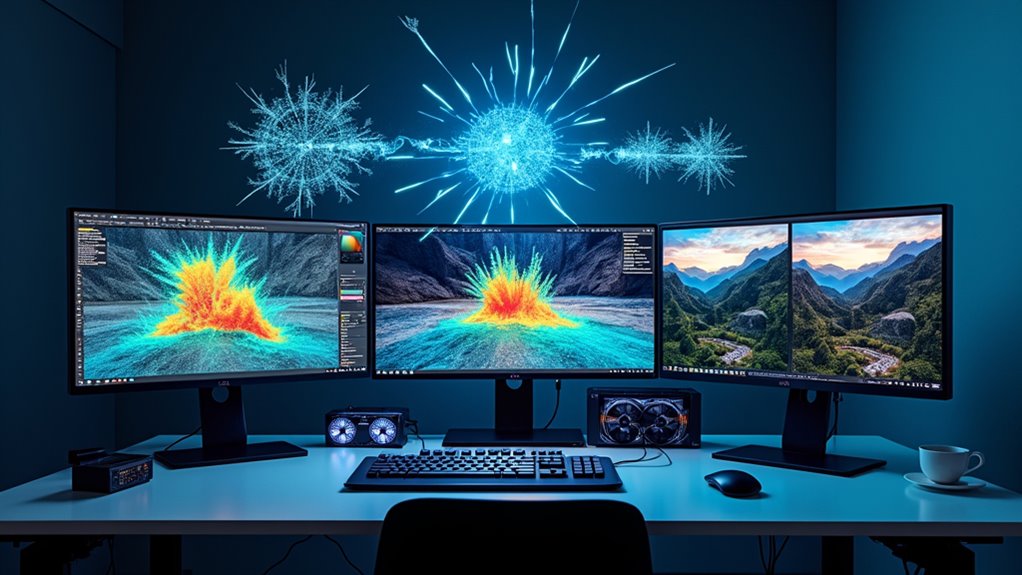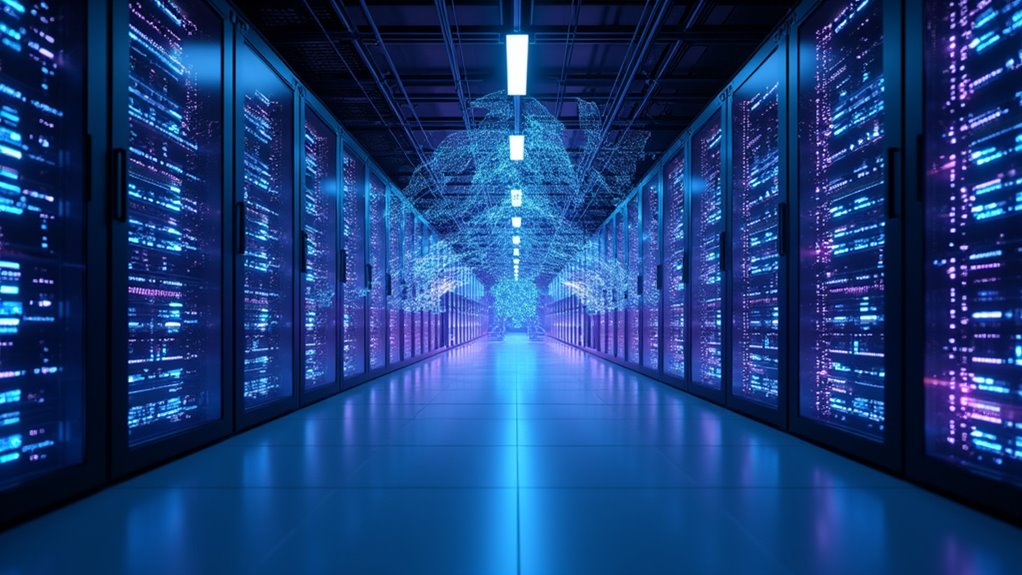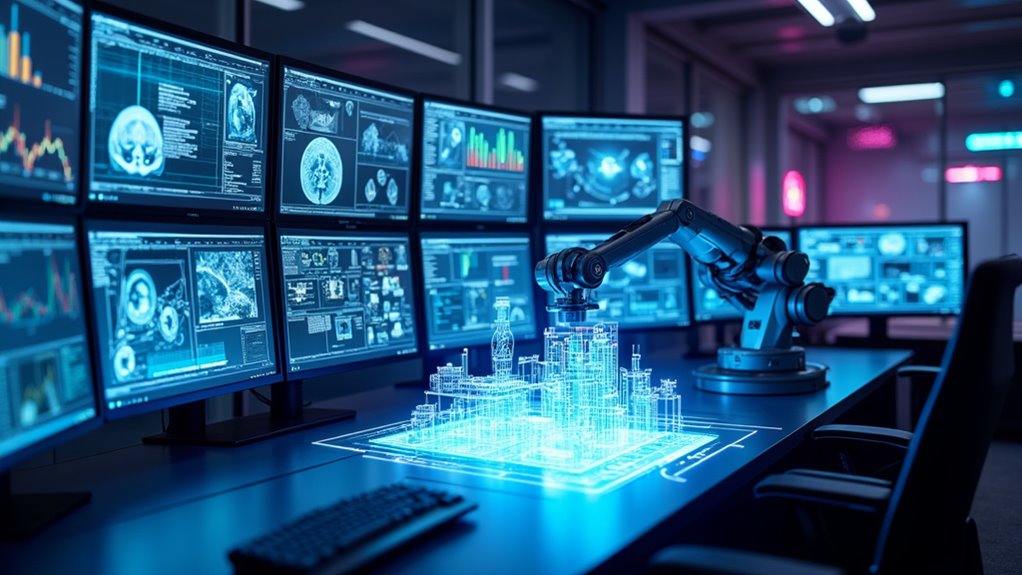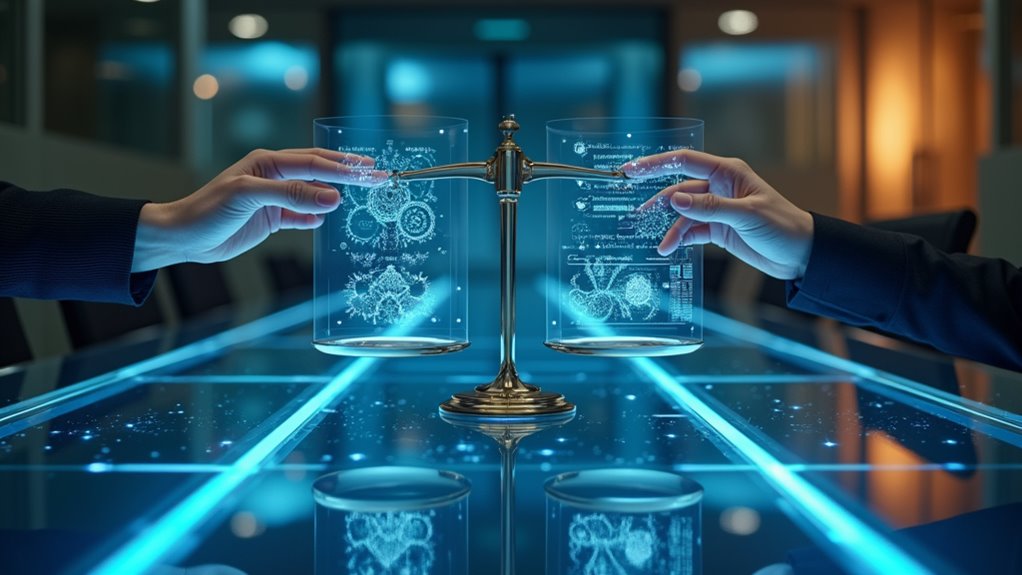AI’s journey spans decades, from its 1956 Dartmouth birth to today’s ChatGPT revolution. The path wasn’t smooth—remember those frustrating “AI Winters” when funding dried up? Early systems like ELIZA could barely hold conversations, while modern models process billions of parameters. Milestones include Deep Blue beating Kasparov (1997) and AlphaGo shocking Go champions (2016). Now AI touches everything from manufacturing to your morning routine. The transformation from academic curiosity to daily necessity is just beginning.
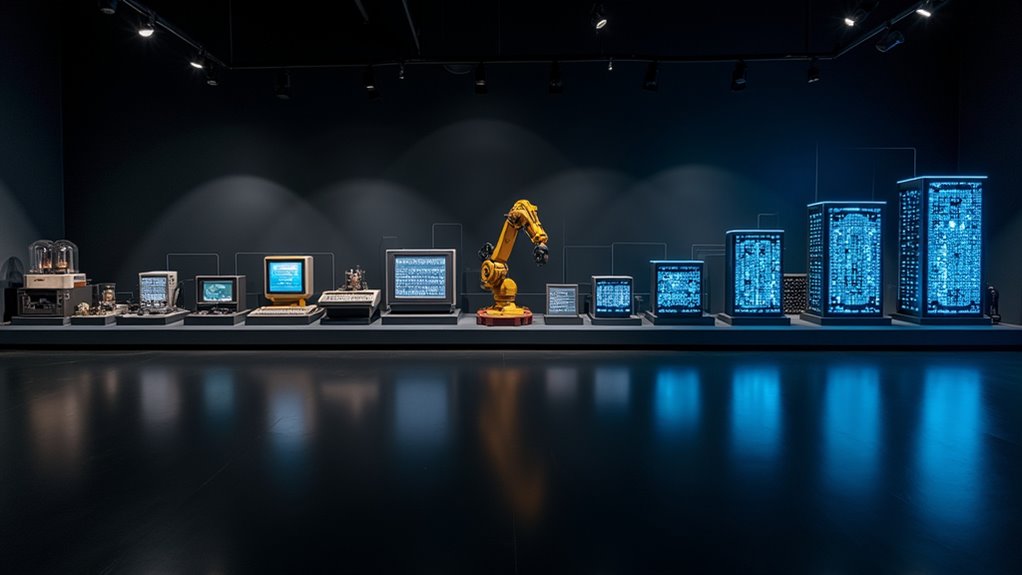
While many people think artificial intelligence emerged only recently with chatbots and voice assistants, AI’s journey actually spans over seven decades of fascinating development. The field officially began at the 1956 Dartmouth Conference, where the term “Artificial Intelligence” was coined. Before that, Alan Turing had already proposed his famous Turing Test in 1950, challenging us to determine whether machines could think like humans.
Early AI applications included SNARC, a primitive neural network using vacuum tubes to simulate just 40 neurons – laughably small by today’s standards! These foundations led to exciting breakthroughs in how we interact with machines. ELIZA, developed in 1966, was the first chatbot that could somewhat convincingly talk with humans. Remember when that was impressive? Joseph Weizenbaum’s creation of ELIZA represented a significant milestone in natural language processing capabilities.
From vacuum tubes to chatbots—AI’s humble beginnings remind us how far we’ve come in human-computer interaction.
Automation trends accelerated with Unimate in 1961, the first industrial robot that changed manufacturing forever. But AI wasn’t always on an upward trajectory. The 1970s brought the infamous “AI Winter,” when funding dried up faster than spilled coffee on a keyboard.
Neural networks made a comeback in the 1990s thanks to better computers and more data. IBM’s Deep Blue shocked the world in 1997 by defeating chess champion Garry Kasparov – a watershed moment for AI capabilities. By the 2000s, AI entered our homes through robots like ASIMO and later through our pockets with Siri in 2008.
The 2010s marked extraordinary progress. Watson trounced humans on Jeopardy! in 2011. AlphaGo defeated the world Go champion in 2016. These AI victories demonstrated AI’s potential to outperform humans in specific complex tasks. Want proof of how far we’ve come? Compare ELIZA’s scripted responses to today’s ChatGPT, which generates human-like text from virtually any prompt. Future advancements will need to balance technological innovation with ethical considerations to ensure AI augments human capabilities rather than replaces them.
From SNARC’s 40 neurons to language models with billions of parameters, AI’s evolution shows no signs of slowing. What started as academic curiosity has transformed into technology that shapes how we work, communicate, and live – whether we realize it or not.
Frequently Asked Questions
How Does AI Affect Employment Across Different Industries?
AI’s impact on employment varies dramatically by industry.
Manufacturing faces serious job displacement as robots handle repetitive tasks.
Meanwhile, healthcare and education anticipate growth, creating roles like AI trainers and data analysts.
Finance shows a mixed picture—fewer insurance adjusters but more investment advisors.
Across all sectors, workers must prioritize skill enhancement to stay relevant.
The projection? A net gain of 58 million jobs by 2025, despite 75 million displacements.
Adapt or get left behind, folks!
What Ethical Concerns Arise From Widespread AI Implementation?
Widespread AI implementation raises serious ethical red flags.
Bias mitigation remains a massive challenge, as AI systems often perpetuate existing prejudices against marginalized groups.
Think your algorithm is neutral? Think again!
Privacy implications should terrify anyone paying attention – your data gets harvested, analyzed, and potentially misused without real consent.
Meanwhile, accountability remains murky at best.
Who’s responsible when AI makes harmful decisions? The answer isn’t comforting: usually nobody.
Welcome to the ethical minefield of modern AI.
How Secure Are AI Systems Against Hacking or Manipulation?
AI systems remain worryingly vulnerable to various attack vectors.
Regular vulnerability assessments reveal weaknesses in many implementations, particularly against data poisoning and adversarial attacks.
While security protocols have improved, they’re often playing catch-up to sophisticated threats.
Think your AI is safe? Think again.
Only about 25% of AI projects meet basic security standards—a sobering reality in today’s landscape where attackers continuously develop new techniques to manipulate these increasingly powerful systems.
Can AI Develop Consciousness or Sentience?
The consciousness debate surrounding AI remains unsettled.
Current AI systems don’t meet established sentience criteria—they lack self-awareness and genuine experiences despite impressive language capabilities. Experts generally reject the notion that today’s AI is conscious, though public perception differs dramatically.
The gap between technical reality and public perception creates genuine ethical concerns. Future AI consciousness isn’t impossible, but we’re nowhere close yet.
The question isn’t just technical—it’s philosophical, ethical, and increasingly urgent.
What Regulations Govern AI Development Internationally?
AI development lacks unified international treaties, leaving a patchwork of regulatory frameworks worldwide.
The EU leads with its extensive AI Act, categorizing systems by risk levels. Meanwhile, countries like Singapore, Japan, and China pursue their own approaches.
National governments typically establish guidelines, while some rely on existing sectoral regulations. High-risk applications face stricter scrutiny everywhere.
This fragmented landscape means companies must navigate multiple jurisdictions when deploying AI systems globally.
